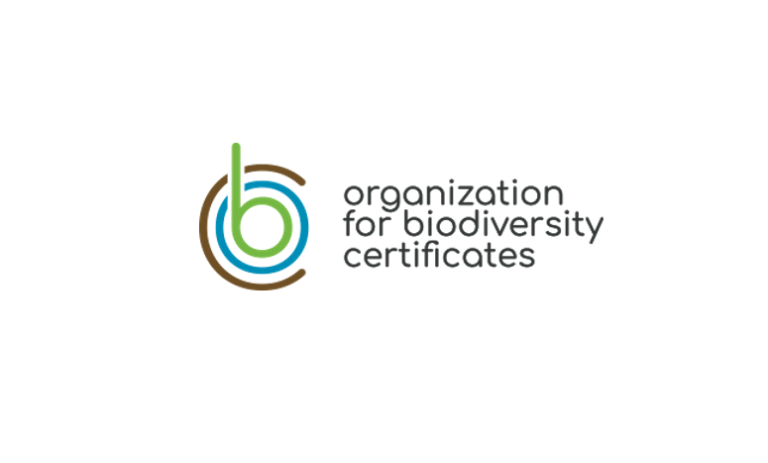Link(s) :


16.12.2022
The OBC initiative has launched a consultation on a proposed methodological framework for the development of a biodiversity certificate mechanism. ATIBT members are invited to contribute their expertise and participate in this consultation.

Presented at the ATIBT Think Tank #5, the "Organization for Biodiversity Certificates" aims to create an operational tool for assessing positive local impacts on biodiversity.
Based on the urgent need to act for biodiversity and to find more funds for the restoration, preservation and sustainable use of ecosystems, the initiative, launched last October, was co-founded by aDryada and Le Printemps des Terres, in collaboration with Carbone 4 and the French National Museum of Natural History.
Consultation of the methodological proposal
The first action of the initiative is to develop a methodology to assess biodiversity gains that has been proposed to OBC by Carbone 4 and the Muséum d'Histoire Naturelle, partners of the initiative. This proposal aims to develop a methodological framework for the development of an equitable and operational financing mechanism to support the preservation, restoration and sustainable use of ecosystems.
This proposal is currently in a consultation phase until January 9, 2023: the ATIBT invites its members to comment on this proposal and to send their interest to the following address: contact@obiocert.org
The feedback is very valuable, especially for taking tropical ecosystems into account in this mechanism and developing a model that can be adapted to sustainable forest management.
The proposal can be viewed and downloaded here
This document presents a comprehensive approach to the design of a biodiversity certification scheme. The operational methodologies remain to be developed, and this will be the focus of future work with the OBC and its members. At this stage, several aspects have been deliberately left open. Moreover, this document is not definitive. The various stakeholders (companies, field actors, experts, NGOs, etc.) are invited to contribute to the methodological developments, so that a fair and robust mechanism commensurate with the challenge can be developed collectively.
Why the OBC initiative?
Today, various signals indicate that companies are ready to invest in actions for the restoration, preservation and sustainable use of ecosystems. One solution to facilitate the contribution of the private sector to this global challenge is to develop a mechanism of "biodiversity certificates" allowing to finance field actions on the basis of quantified and certified "biodiversity gains".
This requires in particular:
The OBC's mission is to help companies and public organizations improve their biodiversity indicators at the global level. While the need to improve the state of biodiversity by reducing pressures, restoring and protecting at least 30% of land and marine areas is recognized worldwide, more and more companies and public organizations want to make a commitment to biodiversity and initiate nature conservation initiatives.
However, they are often slowed down in the development of these approaches by two difficulties:
These two measures are however essential to enable companies and public authorities to take effective action. Indeed, their interest has been noted in the climate field: on the one hand, SBTi (Science-Based Targets Initiative) methods measure CO2 emissions. On the other hand, voluntary nature-based carbon credits measure and certify the results of local actions implemented to capture carbon. This dual assessment then allows companies and public organizations to complement their emission reduction actions by funding initiatives that increase CO2 capture.
Based on these findings, the Organization for Biodiversity Certificates aims to:
ATIBT's involvement in the OBC
The OBC initiative currently has 13 members (companies, foundations, unions and associations). The ATIBT joined at the end of November with the support of the PPECF. During the first General Assembly, held on December 5th, the ATIBT proposed itself as administrator and member of the board and thus participated in the first board on December 9th. We wish to follow the development of this initiative, in particular through the Carbon & Biodiversity Commission.
We believe that the mission of this initiative is promising because on the one hand, it is urgent to support the preservation, restoration and sustainable use of ecosystems, especially tropical ones, and on the other hand, it is necessary to change the economic model of the tropical forest and wood industry. But this raises many challenges.
Indeed, it is important to be able to answer the following questions: How can we assess biodiversity gains when nature is often considered too complex to measure? Can we develop a universal methodology that is robust and easy to implement in the field? How can we go beyond the logic of offsetting and design a mechanism that promotes ambitious global action for biodiversity? What should be the place of certificates in the biodiversity strategy of companies?
As stated during the last think tank, it will be important for ATIBT members, especially foresters, to be a driving force in this action.
To learn more:
The LinkedIn page is already online, the OBC website is under development and will soon be available here.
your contacts :
Link(s) :